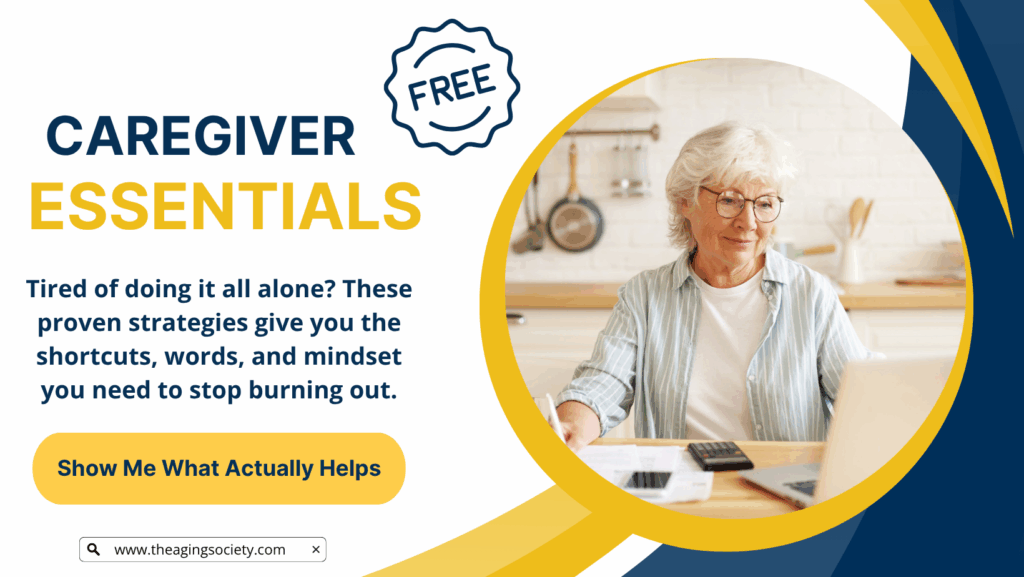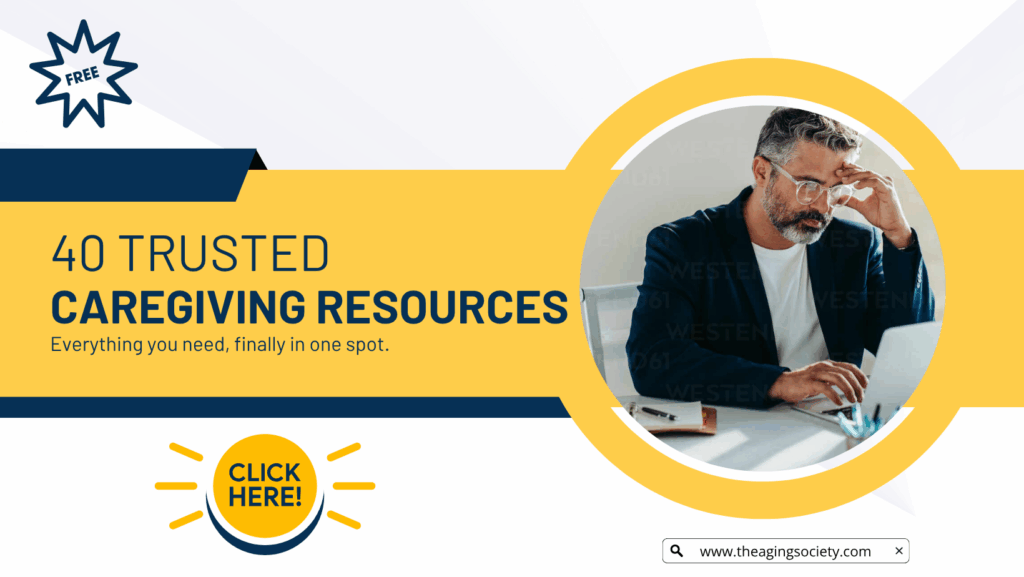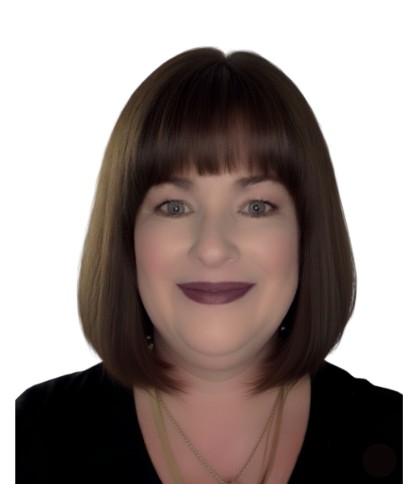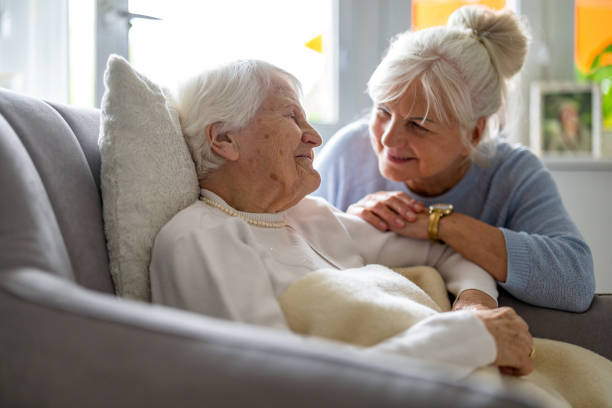Browse by categories
I help caregivers navigate conversations and decisions about senior care with clarity, confidence, and ease.
More about me
September 2, 2025
Why Stepping Back Doesn’t Mean Giving Up
When to step back caregiving isn’t something anyone teaches you, but it’s one of the most crucial decisions a caregiver will ever make. You may wonder if stepping back means failing, but in reality, it’s often the bravest, most loving thing you can do for yourself and your loved one.
Let’s be clear: stepping back is not abandoning your parent. It’s choosing sustainability over self-sacrifice. It’s how love learns to last longer.
The Hidden Emotional Weight of “Doing It All”
Behind every overextended caregiver is a story most people never see. The silent load of coordinating doctors, managing siblings’ silence, and decoding your parent’s shifting moods. You’re not just tired. You’re depleted.
When others don’t step up, it’s easy to think, “If I don’t do it, no one will.” But that belief often grows out of fear, not fact. Fear that things will fall apart, or that love is measured by output. It’s not.
What Family Pushback Often Really Means
When you do start asking for help, you might hear:
- “But you’ve always handled it.”
- “It’s not that bad, is it?”
- “Don’t be dramatic.”
These words sting, but they often signal discomfort, not disapproval. Criticism usually masks powerlessness. Condescension hides fear. Silence signals overwhelm. Understanding this can soften your response and your heart.
Signs It May Be Time to Step Back
Your Body Is Telling You
Chronic headaches. Poor sleep. A stomach that won’t settle. When your body is breaking down, it’s speaking up, because you haven’t.
Your Emotions Feel Raw, Not Resilient
You’re not just weepy, you’re brittle. The smallest request feels like too much. You fantasize about disappearing, even for a weekend. These are not signs of weakness. They’re signals of unmet needs.
You’re Starting to Lose Yourself
You no longer remember what you like to do. Your friendships have withered. Even your tone has changed, short, snappy, and unlike you. These losses accumulate quietly. But you still matter.

The Conversation You Might Be Avoiding
Stepping back often starts with speaking up. That’s where it gets tender.
What to Say When You Need More Help
Here’s a gentle script:
“I love Dad. I’m not leaving, I’m recalibrating. I need to step back so I can keep showing up in a way that’s healthy for all of us.”
Focus on why it matters, not just what you’re doing.
How to Handle Resistance Without Guilt
Remember: most people resist change when they feel blamed or excluded. Instead of “You never help,” try:
“I’ve realized I can’t keep doing this alone. I’d love your input on how we can all share the load better.”
It invites, not accuses.
How to Step Back Without Stepping Away
Redefine Your Role, Don’t Abandon It
You might shift from being the point person to the connector. From daily caretaker to care coordinator. That’s not less loving. It’s more sustainable.
Create a New Care Map with Support
Whether it’s bringing in part-time help, using meal delivery, or rotating weekend duties with siblings, start small. One change at a time, layered gently.
Use a tool like our Caregiver Roles Matrix to identify what you can release—and to whom.
How to Know When to Step Back from Caregiving
This question is more than logistical. It’s emotional. The real tipping point often isn’t about time or tasks. It’s about when caregiving begins to erode the very relationship it was meant to protect.
If your presence now feels like pressure, on both sides, it’s time to re-center.
Caregiving was never meant to be a solo mission. Stepping back might be the most courageous, loving act you can do. It says: This matters too much to burn out.
FAQs
What if my family thinks I’m abandoning my parent?
Reframe the conversation. Say, “I’m doing this so I can keep showing up in a healthy way. I’m not leaving—I’m shifting.”
Can I step back without hiring full-time care?
Absolutely. Start with small changes: ask a sibling to manage meds, arrange grocery delivery, or use respite care services occasionally.
Is it selfish to prioritize my mental health over caregiving?
Not at all. Burnout doesn’t serve anyone. A rested, grounded caregiver makes better decisions and offers more sustainable care.
What if my parent resists any change?
Resistance often means fear. Affirm their feelings, involve them in decisions, and change one thing at a time.
Final Thoughts: You Are Enough
Let this land gently: stepping back is not stepping away.
Your love isn’t measured in hours. It’s measured in how clearly you show up, how calmly you decide, and how kindly you treat yourself along the way.
And if you need help deciding how to step back? We’re here. Not with judgment. With maps, language, and relief.


Susan Myers is a Mom, Caregiver Strategist, and founder of The Aging Society. She helps family caregivers get the clarity they need to navigate aging parent care without losing themselves in the process. Her courses, resources, and Caregivers: Talk With Purpose podcast offer grounded, practical support for the moments that feel overwhelming, confusing, or heavier than expected.
Leave a Reply Cancel reply
where can I take you?
where can I take you?
Resource Center
Caregiver essentials
thoughtful giftst
conversation action plan
home
contact
blog
about
The Aging Society helps caregivers navigate conversations and decisions about senior care with clarity, confidence, and ease.

Join Others in my Weekly Newsletter